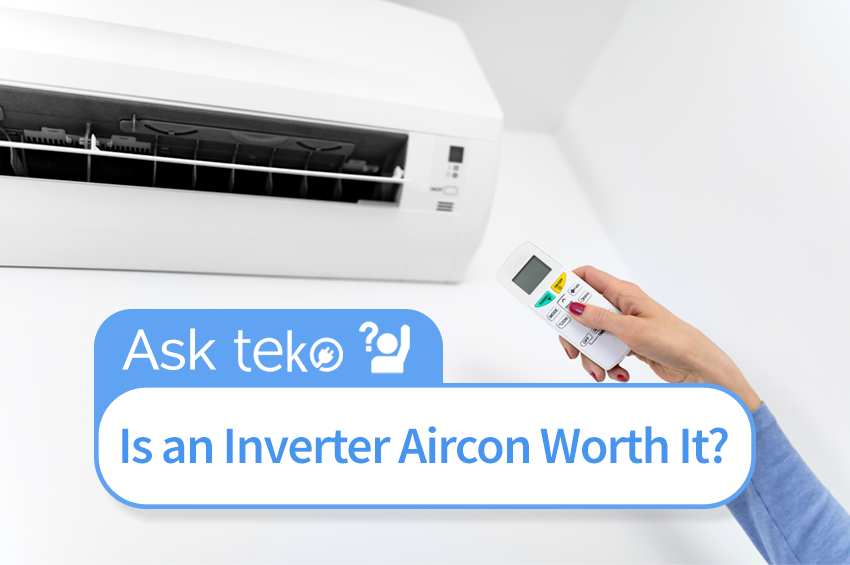
Did you get caught up in the hype of inverter aircon posts on social media? It’s easy to be convinced by testimonials, especially if you’re really on the hunt for an AC. But for something as important as buying an aircon unit, it’s important to get it right the first time. We’re Teko.ph, the largest aircon and appliance services provider in the Philippines, and we’re here to guide you on your next big purchase!
In the Philippines, the two most prevalent air conditioners are inverter air conditioners and non-inverter air conditioners. Both may cool your space, but they’re tough to distinguish sometimes. You may have seen the word “inverter” a few times, and you’re wondering what it means when it comes to the quality of the aircon unit.
In simpler terms, inverter air conditioners are modern machines that use a regulated compressor. In contrast, non-inverter air conditioners are less complex and use a standard compressor. This makes them less expensive and more common in homes, stores, and offices.
Though they may appear identical, inverter and non-inverter air conditioners differ in functionality, mode of operation, built-in features, and more. In this blog, we took the time to compare both types across the most important categories.
Compressor
The primary difference between the inverter aircon and the non-inverter one is that they use different compressor motors.
A huge factor to consider here is that inverter units use an adaptable compressor. When necessary to cool or heat, the compressor works harder to raise or reduce its output. However, because you can’t adjust the compressor in a non-inverter air conditioner, the unit will either chill the room at full capacity or not at all.
Efficiency
Energy efficiency is perhaps what an inverter aircon is mostly known for. It has a technology that regulates the compressor speed and changes the temperature as needed, making it a better choice for those looking to cut back on their electricity consumption. How a non-inverter type works might result in excessive and wasteful energy use, thus increasing your power bill. This is ideal not only for financial reasons but by using less energy, it’s also kinder on the planet.
Cooling Performance
In terms of the capacity to cool your space, both inverters and non-inverters will do a decent job. If we’re strictly talking performance and not minding versatility and energy efficiency, we can say it’s a draw in this round.
Upfront Cost
Non-inverter air conditioners are likely to outperform inverter air conditioners in this category, owing to their lower cost. With an inverter unit, installation costs are also significantly higher.
However, many may argue that the costs associated with an inverter unit should be considered an investment because it is more versatile and modern. If you use the AC for an extended period, you’ll save more money on power bills than a non-inverter type. If we’re comparing upfront price tags, non-inverters win. But in the long game, the hefty price tag of inverter units is unarguably well justified.
The Verdict
So is an inverter aircon worth it? Definitely. When shopping for an AC unit, you know you’ll have to think long-term, right? Therefore, its energy efficiency, versatility, and modern technology features are worth the added cost. Don’t forget to choose from The Best Aircon Brands in the Philippines to get your money’s worth!
People Also Ask: How do I know if my unit is an inverter aircon?
Most manufacturers will mark an inverter system on the unit’s body mainly for marketing reasons, while non-inverter systems usually have no markings. The easiest way to determine this is by Googling your unit’s model number.
If your aircon has a non-inverter system, it will periodically switch on and off. On the other hand, an inverter system will change the compressor’s speed to varying power levels. It happens when the air conditioner finishes cooling the room and switches to a sustainment power level. You should be able to hear a change in the frequency and sound levels of the compressor.
